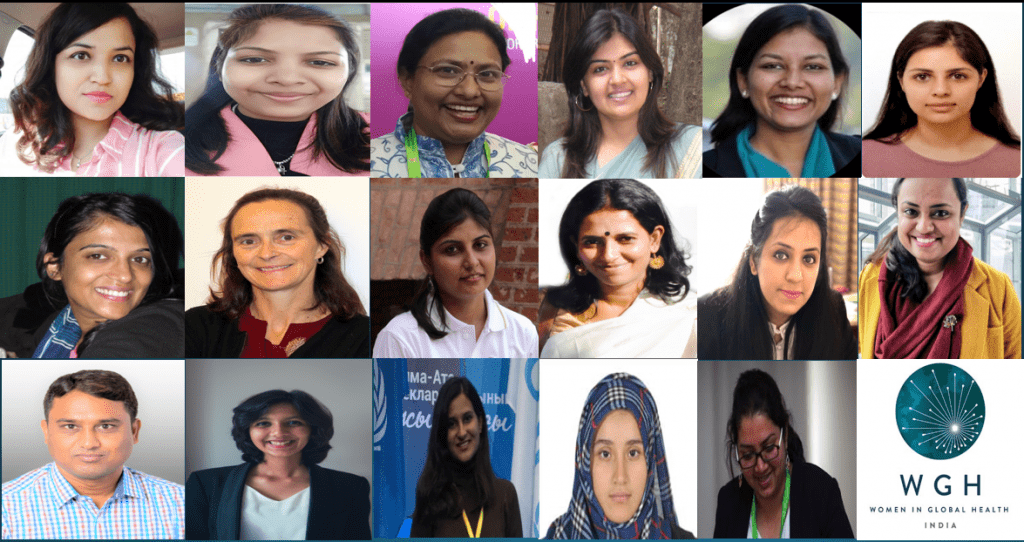
India’s response to COVID-19 relies heavily on the female Frontline Health Workers (FLWs), also known as Community Health Workers (CHWs). FLWs include Accredited Social Health Activists (ASHAs), Auxiliary Nurse Midwives (ANMs), and Anganwadi Workers (AWWs). From the beginning of the pandemic, they have been involved in surveillance, home visits, awareness generation about COVID-19 transmission and prevention, and facilitating access to COVID testing and treatment services along with their usual responsibilities as an FLW.
While there is wide recognition of the role of scientists and doctors in the COVID-19 response, contributions of ASHAs and AWWs continue to be unrecognized.
National and State Governments have issued guidelines to engage FLWs in the pandemic response, among others on the provisioning of additional financial incentives, Personal Protection Equipment (PPE), health insurance and other added benefits. Despite these measures, these workers continue to experience stigma, violence, delayed and insufficient payments, and lack of proper and adequate PPE while performing their tasks. Moreover, in a number of cases, FLWs who tested COVID-positive did not receive adequate support and care. These challenges not only hamper their performance but also have wider implications in the form of a delayed and ineffective health systems response to control COVID-19.
Concerns of these workers have been raised in presentations by worker’s trade unions, through journalistic writing and independent research studies. However, a more systematic approach to connect the voices of workers with policymakers and the public is still lacking. To address this gap, Women in Global Health India (WGHI), the national arm of the global WGH movement organized a series of dialogues to make the COVID-19 related contributions and concerns of the ASHAs and AWWs better known.
The series was designed to gain perspectives from stakeholders located at different levels of health systems including community, state, and national levels. It comprised three virtual dialogues in the second week of June. Discussants included health workers, workers representatives, trade union representatives, civil society members, researchers, state and national level policymakers, and international development partners. Around 393 participants from India and abroad affiliated with civil society, academia, advocacy groups, and development partners, interested in the issues of FLWs, health systems, gender, women empowerment, registered for the dialogue series.
Each level of the health system was taken up in a separate dialogue and emergent issues from each level were then fed into the next level of the health system discussed in the series. The primary objective of the series was to create a common platform for various stakeholders to discuss issues concerning the effective engagement of ASHAs and AWWs in the COVID-19 response and recommend broad policy responses for improving their engagement.
Based on the discussions, an effective policy response for addressing key challenges of these workers requires :
As WGH India concluded this series, it received interest for hosting more such dialogues from associations and networks working on the issues of women health workers. Consequently, WGH India will expand the series (in collaboration with other networks) and host similar dialogues on ANMs, female nurses, female doctors, women collectives, and women leaders in the health sector.
Through this forum, WGH India would like to advocate for the creation of more such platforms for open policy dialogues on emerging challenges of women health workers and developing a collective action plan.
Being a voluntary movement, turning the WGH India Dialogue Series into a success, wouldn’t have been possible without the hard work of its team, including, Deena Maryam, Deepshikha Chhetri, Karan Babbar, Kaveri Mayra, Kusuma Talluri, Mohit Varyani, Nitya Saxena, Poorva Patil, Shubha Nagesh, Sneha Krishnan, Sugandha Parmar, Stuti Chakraborty and Varuna Srinavasan; and our secretariat, Chitkara School of Health Sciences, Chitkara University, for its administrative support in hosting the series.
To join WGHI, please share your expression of interest here, and write to wghindia@womeningh.org for any queries. Follow us on Twitter, LinkedIn, Facebook and Instagram for the reports and other upcoming announcements.